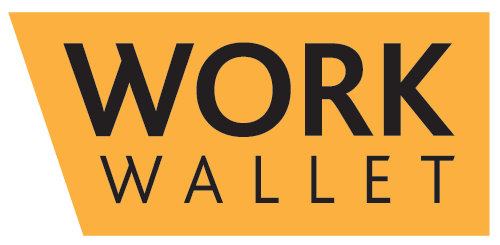What Are Contractor Management Systems in Construction? Navigating the Digital Transformation
17 March 2024

In the construction industry, using independent contractors and subcontractors is essential to ensure the delivery of specialist work across large and small projects. However, managing multiple contractors can quickly become a logistical challenge without the right tools. This is where Contractor Management Systems (CMS) come into play. Contractor Management Systems are software solutions designed to streamline the processes involved in managing contractors, improving efficiency, and reducing the risks associated with documentation, communication, payments, and compliance.
What Are Contractor Management Systems in Construction?
A Contractor Management System (CMS) is a digital platform designed to help businesses effectively oversee and manage their contractor workforce. It is a central hub for onboarding, compliance tracking, scheduling, payment processing, and performance evaluation.
For the construction industry—which is inherently complex due to its dynamic project scopes, safety regulations, and timelines; a CMS provides the structure and clarity needed to:
- Simplify communication between project managers, contractors, and stakeholders.
- Ensure compliance with safety standards and regulatory requirements.
- Track contractor performance to enhance project transparency and success.
By consolidating these processes into one centralised system, businesses can ensure smoother project execution, increased productivity, and reduced administrative burdens.
What Are Contractor Management Systems Used For?
While individual platforms offer unique tools, most robust Contractor Management Systems include these core functions:
Onboarding and Compliance
Manually managing contractor onboarding is time-consuming and prone to errors. A CMS automates collecting and verifying critical documents such as licenses, certifications, and safety records.
- Ensures compliance with industry regulations.
- Provides automated reminders for document renewals or expirations.
- Reduces risk of penalties or safety breaches.
Task Assignment and Scheduling
A CMS enables precise task allocation based on contractor skills, availability, and qualifications.
- Optimises workforce management.
- Provides real-time visibility of schedules and workloads.
- Integrates seamlessly with project management tools to ensure timelines are met.
Performance Tracking
Tracking contractor performance is critical for measuring project success. A CMS helps monitor:
- Task completion rates.
- Work quality and adherence to deadlines.
- Areas requiring improvement or resource reallocation.
Payment and Invoicing
Streamlining payment processes ensures contractors are paid promptly and accurately:
- Automates payment calculations based on work completed.
- Reduces errors in invoicing.
- Helps businesses remain compliant with tax regulations.
Risk Mitigation
Contractor Management Systems help identify and mitigate potential project risks, including:
- Safety non-compliance.
- Contractual disputes.
- Scheduling conflicts.
Data Management and Reporting
By centralising contractor data, a CMS provides actionable insights that support business growth.
- Streamlines reporting for compliance and performance.
- Enhances decision-making through detailed analytics.
- Offers a single source of truth for contractor-related information.
How Contractor Management Systems Help Construction Adapt to the Digital Age
The need for efficiency, accountability, and scalability drives the construction industry's digital transformation. Contractor Management Systems address these priorities by:
- Automating processes: Reducing manual workloads allows project managers to focus on core tasks.
- Improving compliance: Ensuring safety and regulatory adherence.
- Providing scalability: Systems can adapt to growing project scopes and contractor workforces.
- Enabling data-driven decisions: Simplifying complex data analysis for better business strategies.
Advantages of Using Contractor Management Systems in Construction
Implementing a CMS offers several benefits, including:
- Cost Savings: Streamlined processes reduce administrative overhead and improve resource allocation.
- Risk Mitigation: Compliance tracking and performance monitoring mitigate operational risks.
- Enhanced Productivity: Contractors are integrated seamlessly into project workflows.
- Centralised Data Management: Simplifies reporting and analysis across complex projects.
- Improved Communication: Ensures real-time updates and collaboration between project managers and contractors.
Choosing the Right Contractor Management System
Selecting the right system for your construction projects involves evaluating key features, including:
- Compliance Management: Automates document verification and regulatory tracking.
- Scalability: Ensures the system grows with your business needs.
- Reporting and Analytics: Provide actionable insights in user-friendly formats.
- Communication Tools: Enables real-time collaboration across all project stakeholders.
Streamlining Independent Contractor Management in Construction
The construction industry relies heavily on independent contractors to deliver specialist services, improve project flexibility, and meet tight deadlines. A Contractor Management System simplifies this by:
- Automating onboarding and compliance checks.
- Tracking performance and ensuring accountability.
- Enhancing communication and collaboration.
At Work Wallet, we understand construction businesses' unique challenges when managing contractors. Our Contractor Management Solutions are designed to empower project managers with the tools to streamline processes, reduce risk, and deliver projects on time and within budget. With features like real-time collaboration, performance tracking, and automated compliance management, Work Wallet provides a centralised solution for keeping projects running smoothly.
Discover how Work Wallet can transform your contractor management processes. Schedule a demo today and take the next step towards safer, more efficient construction projects.
Share post
More Posts
Smart, Simple, Safety Software at The NEC
Apr 2025
We had an amazing few days at the NEC Birmingham for this year’s Health & Safety Event. It was great...
Work Wallet & Incora’s Safety Transformation Earns IIRSM Award Finalist Spot
Mar 2025
We’re beyond excited to share that Work Wallet is a finalist for Technological Innovation Project of the Year at the...



